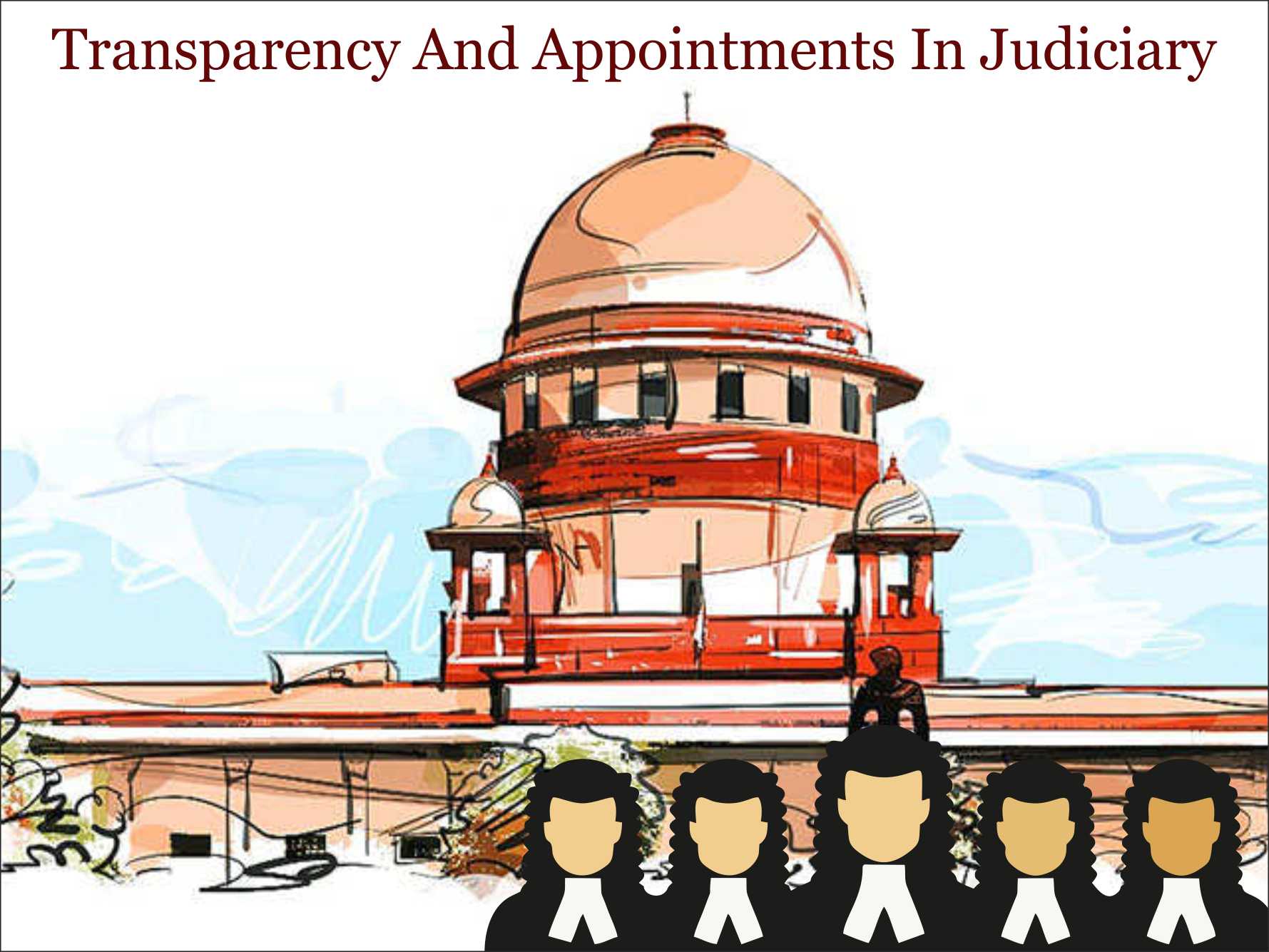The Indian Judiciary is crippled by its own mechanics, which evade public scrutiny to Judicial appointments by its opaqueness. What one might recognise as the collegium system, is a body comprised of the Chief Justice of India and the four senior most judges of the Supreme Court which appoints new judges from the High Courts and the Bar. Similarly, the collegium for the appointments in the High Courts comprises of two senior most Judges along with the Chief Justice of the respective High Court.
One might opine that since the collegium comprises of such qualified persons holding such revered positions, it is amply justified to have their say in the appointment of the Judges who would eventually end up working along their side and hopefully succeed them later on. Why it is not justified, in my opinion, is not because of the question of qualification, but rather the question of exercising discretion garbed over arbitrariness. When clear reasons for choosing one person over the other are not made public, obviousness dictates that their validity would become questionable.
You can also read the latest judgment by visiting [Latest Judgment]
For more information, visit [Aashayein Enquiry Section]
Since, there have been many instances in recent years itself that demonstrate violation of the rule requiring the succession of judges in order of their seniority. The judges of the Supreme Court themselves opposed and criticized the collegium system in many instances. Most frequently quoted in this context is Justice P. N. Bhagwati who called the collegium system as, “a sacred ritual whose mystery is confined to only a handful of priests”. Clearly, had the workings of the collegium with regards to appointments not been so peculiar and secretive, so many would not have raised such questions as to its vouched infallibility.
As a resorted measure to circumscribe the nature of opaqueness in this system, a body was proposed to be formed, namely the National Judicial Appointments Commission. Which laid the foundation of a more democratic becoming of the Court system. However, in its pursuit, the proposed amendment to the Constitution was eventually not made possible since it was struck down by the Supreme Court on grounds of encroachment upon its powers by the executive and thus crossing the line of demarcation between the tiers of the government and hence being unconstitutional. Had the proposed 99th amendment to the Constitution came through, the so formed body would consist of the Union Minister of Law and Justice and two eminent persons from the civil society in addition to the Chief Justice of India and the two senior most judges of the Supreme Court.
The way forward appears hazy, as only shallow promises have been made to improve the collegium system, while as the time passes by, more and more instances of biasness crop up periodically with regards to appointments. In fact, there are enough members in the lower judiciary and Bar, who are adequately qualified and experienced to fill in the vacancies in the High Courts, yet steadfast to their own arbitrariness the collegium has decided to keep them vacant, subjugating the needs of the people of the nation whom they are answerable to. Keeping silent about all the questions so raised about the conduct of the courts in relation to the whys and hows of the appointments, the Judiciary has received sharp criticism both on national and international grounds for its conduct.
Not if the NJAC, then at least publication of reasons to any questions raised by the people is the least that the courts could do in a democratic setup, to allow the scope for discourse wherever it exercises its discretion and disregards the obvious choice as per the seniority rule. Would it not hurt to behave as a democracy in an otherwise seemingly oligarchical setup?

